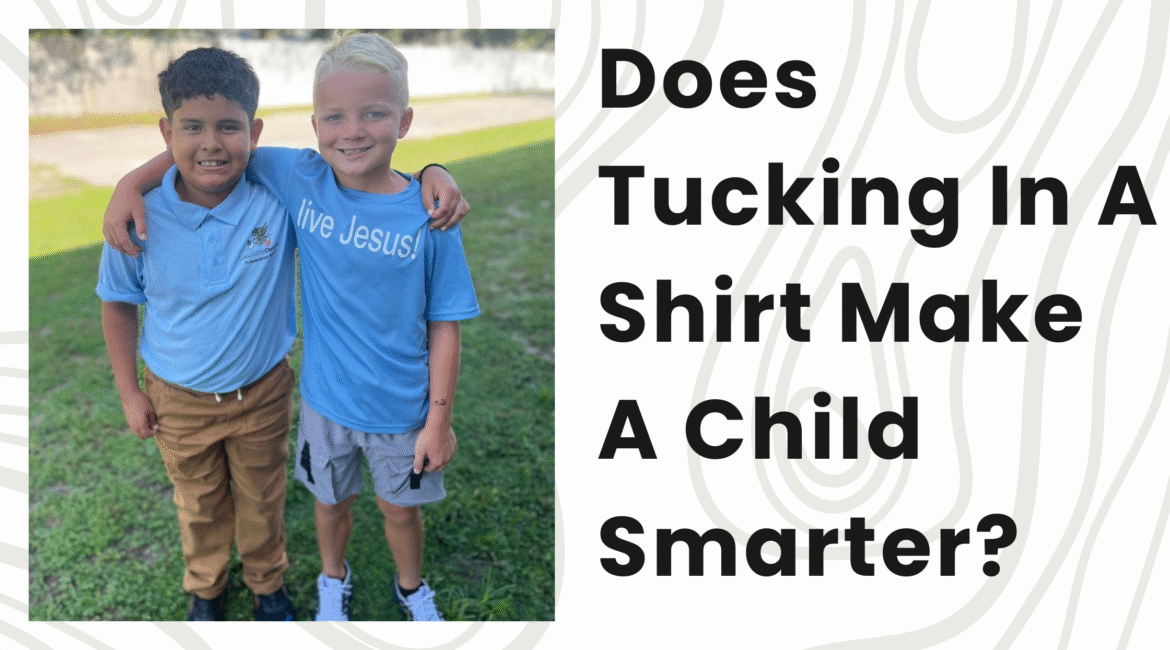Does Tucking in a Shirt Make a Child Smarter?
Having a shirt tucked in may make a student look neater, but neatness does not equal intelligence. A child’s ability to think critically, stay engaged in learning, and grow in character is not determined by whether their shirt is tucked in or not.
Possible Benefits of Tucking in a Shirt
- Neat Appearance: Tucked-in shirts can create a uniform look that some associate with discipline and order.
Consistency in Dress: Some schools believe it promotes a sense of equality or professionalism.
But these benefits are surface-level. They don’t directly improve a child’s learning, creativity, or happiness.
The Reality of School Life
Children in a healthy learning environment are moving, playing, dancing, and engaging with their peers and teachers. During these moments, shirts naturally come untucked.
If the focus is placed too heavily on clothing rules, the message becomes one of control instead of growth.
Do parents really want their children receiving demerits, warnings, or even parent meetings simply because of an untucked shirt? That only adds unnecessary negativity to a child’s day.
What Really Matters
The skills that truly shape a child’s future include:
- Respect for self and others
- Staying on task
- Listening and following directions
- Critical thinking and curiosity
Compared to these, a tucked shirt ranks very low in importance.
Comfort and Confidence
Some children dislike tucking in their shirts because of body shape, comfort, or self-image. Starting the day feeling uncomfortable can lower confidence before any learning even begins.
School should be a place where children feel safe and supported, not policed for arbitrary details.
Role Modeling and Fairness
If a school insists on a mandatory tuck-in rule, then every adult on campus—teachers, administrators, and staff—should model that standard consistently.
Anything less creates double standards and weakens respect for rules in general.
The Bigger Picture
Children have a tremendous amount to learn—academics, social skills, resilience, kindness. Their happiness and willingness to engage should be the priority.
Rules that are unenforceable, burdensome, or disconnected from learning should not distract from what matters most.
Unless it can be proven that tucking in a shirt actually makes a child smarter, it should remain a choice, not a mandate.





